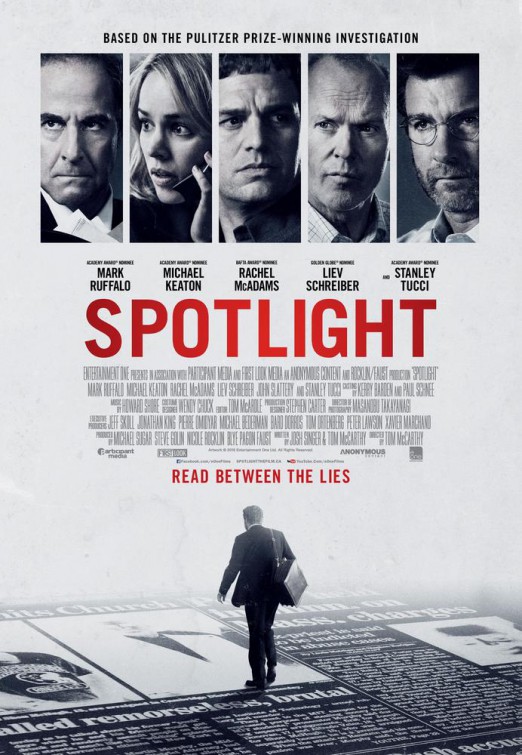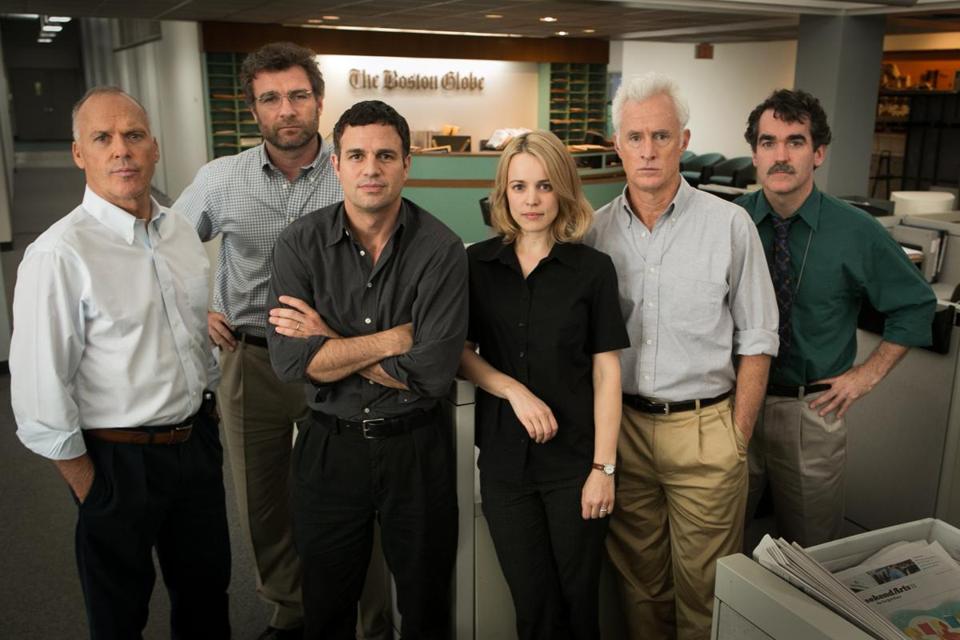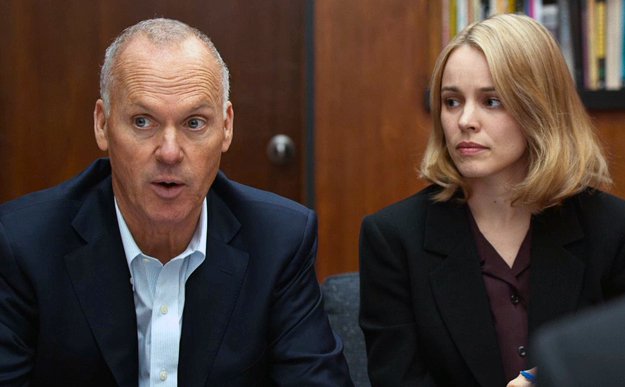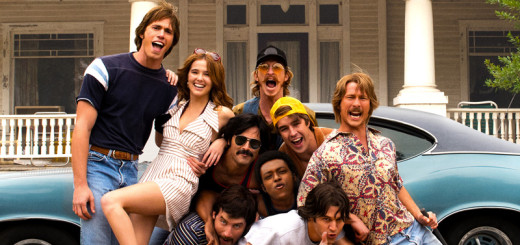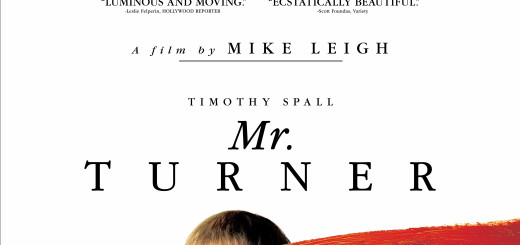SPOTLIGHT Review
Director: Thomas McCarthy
Genre: Drama
Release: 2015
Midway into Thomas McCarthy’s film, Liev Schreiber explains that nailing 40 priests for child molestation isn’t what his investigative team should be trying to accomplish, rather proving the systematic protection of these criminals by the Catholic church. To much the same degree, 2015’s SPOTLIGHT intends to make the same statement about the importance of investigative journalism over the exposure of an already published story, valuing message over sensationalism, indirectly proving that film can be more than mere escapism, firmly cementing itself as 2015’s best release thus far.
Ethical conduct is the foundation for any education in journalism, and yet this same rule is rarely applied to the teaching of filmmaking. In a day and age where the megalodon of sensationalist pop-media has seemingly swallowed news outlets and investigative journalism as a midnight snack, viewers cling to the cinematic expertise of outlets like VICE as the last bastion of true investigative journalism. The fact that there was a better time, an era where newspapers held a weight that could be felt on a global scale, often eludes the digital age, and 2015’s SPOTLIGHT serves to remind audiences of the power of media, offering what is the most comprehensive look into the responsibilities of news publications in the face of criminal activity since the fifth season of David Simon’s THE WIRE.
It’s also the reboot of MAD MEN
Thomas McCarthy’s film has taken on an important responsibility, willfully casting off much of the cinematic standards that viewers expect when watching a two-hour film. Praising the fantastic performances (everyone from Keaton to Michael Cyril Creighton, although Mark Ruffalo is the clear master this time around) and the sublime subtlety of the camerawork feels misdirected, because McCarthy clearly doesn’t want the focus to lay on the actors, but rather his message, simply using everyone’s incredible dramatic chops in order to bring enough empathy and emotion to the table without squandering time explaining to the audience why they should root for them. Reviewing SPOTLIGHT has nothing to do with its merit on a cinematic level, although it has a ton of it, because it’s the closest thing cinema has had to an ode to the purity of pre-digital investigative journalism since Michael Mann’s THE INSIDER.
In an attempt to uncover the Catholic church’s protection of child molesting priests, the protagonists of SPOTLIGHT don’t have any singular antagonist that intends to foil their plans. McCarthy intentionally strips his narrative of protagonist backstory in order to make way for the complexities of ethical journalism. In an all-business tour de force, McCarthy gives us little to hold onto in the way of character, capitalizing on the predisposed opinions that viewers already have of child molesters within the Catholic church. Laying this hard-as-asphalt groundwork, McCarthy never softens the impact by giving his audience a singular scapegoat, but instead shows us the mistakes and regrets that the journalists have as they begin to realize that even they have made mistakes in their careers.
To many, SPOTLIGHT might be a sensationalist approach to retelling a Boston Globe article, but what becomes clear through McCarthy’s film is that he has no vested interest in telling a simple story of good journalists versus the evil church. If this were his intention, his film would be jam-packed with a protagonist who has a loving wife and two little children whom he fears for every day, and an antagonist on the inside of the Boston Globe who is trying his hardest to prevent the shaming of a large religious organization. But McCarthy counters this approach, realizing that his tale is far more complex. He does tell a fascinating true story, but the heart of his film’s agenda does not lie in shaming a religious institution. SPOTLIGHT is about the greater importance of investigative journalism, not simply the atrocities that the Boston Globe uncovered, using its singular narrative as a surrogate for its ultimate message.
The reporter that Boston needs right now
To say that McCarthy is comprehensive in his analysis would be putting it lightly, showcasing the hardships that hardworking lawyers go through in basement offices whilst their church-protecting counterparts live a life of luxury in downtown high-rises. The endless bureaucracy and search for paper trails is analyzed to a shockingly effective degree, whilst the victims of child abuse have no choice but to wait for the church’s comeuppance as they mournfully eye a playground situated right next to a cathedral, a constant reminder of their stolen innocence. And even as SPOTLIGHT ends, McCarthy doesn’t let up, and in true David Simon form, constantly reminds his audience that although the screen has now faded to black, the job is in no way over.
Verdict: Recommend

